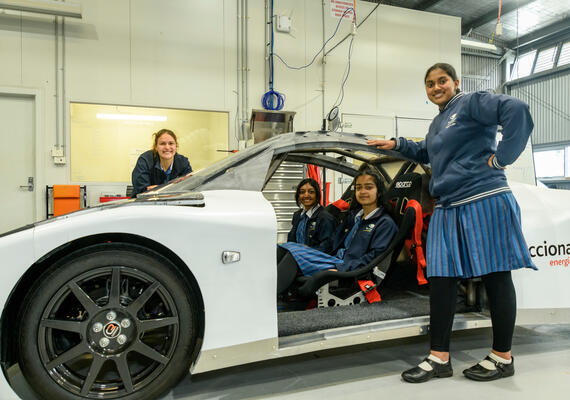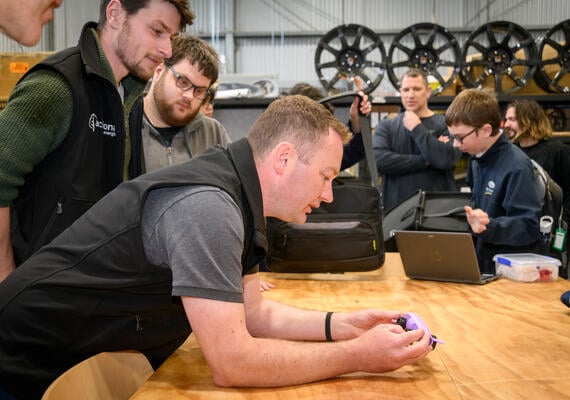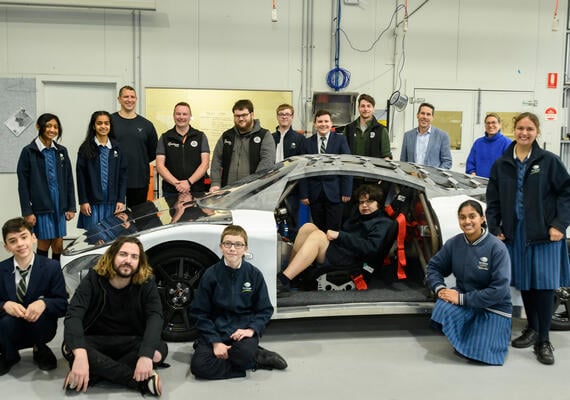Deakin’s ASCEND solar car team inspires young engineers
Deakin news
Students from The Grange P-12 College had an exciting opportunity recently, when they visited the ASCEND Solar Car Project. They were in pole position to access expert advice, from Deakin engineers and academics, about their own ‘F1 in Schools’ STEM Challenge.
The ASCEND Solar Car Project asks Deakin engineering students to design and build a solar-powered vehicle for the 2023 Bridgestone World Solar Challenge – a 3000 km race from Darwin to Adelaide. Students apply their engineering skills and creativity to create an aerodynamic vehicle capable of traversing central Australia’s rugged terrain. Deakin students and academics use additive manufacturing to design and build vehicle body panels and to construct complex automotive parts not easily produced through traditional manufacturing methods
Not unlike the World Solar Challenge, students in Years 8 to 10 from The Grange College are taking part in another of the world’s most competitive Science, Technology, Engineering and Mathematics (STEM) completions, ‘F1 in Schools’.
F1 in Schools is a worldwide extra-curriculum STEM competition for school students aged 11 to 19 years. The students are required to design, develop and race a miniature Formula One car. Engineering and enterprise portfolios and a display pit area for their car will also count towards their final score in the competition.

Mimicking the world of a Formula One team, groups of students follow the pathway of engineering and manufacturing disciplines: design, analyse, test, make and race.
The students use real-world technology such as 3D CAD/CAM/CAE engineering design software and learning outcomes include coding, computational fluid dynamics and finite element analysis.
During their visit, the students shared their 3D printed and CAD models with Deakin engineers and academics, who provided feedback about their designs. The students also enjoyed a tour of the School of Engineering and a tutorial on fluid dynamics to support their competition submission.

Lead ASCEND Solar Car Academic, Matt Jennings, said he was blown away by the level of understanding the students had of the industry standard software they are using to design their mini F1 cars.
‘The way the students have thought so carefully about the aerodynamic properties of the cars is impressive,’ Matt said.
‘Through the ‘F1 in Schools’ project, these students are becoming well prepared for university and the real-world challenges that they will be confronted with as engineers.’
‘The visit to Deakin was a chance for the students to see how the same technologies and engineering processes they are using in the ‘F1 in Schools’ challenge have been used to develop the ASCEND Solar Car.’
‘Deakin Engineering looks forward to further supporting these aspiring engineers through the ‘F1 in Schools’ journey and we wish them well for the upcoming competition.’
The students will race their mini F1 cars in the state-wide competition in November 2022 at Wyndham Tech School and hope to qualify for national titles, which could then lead to competing at an international level.
Learn more:
Study engineering at Deakin University
Learn more about the ASCEND solar car
Share this story

